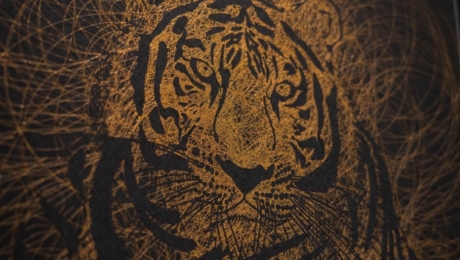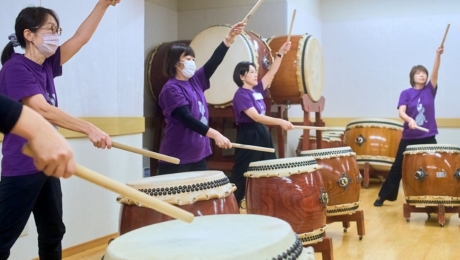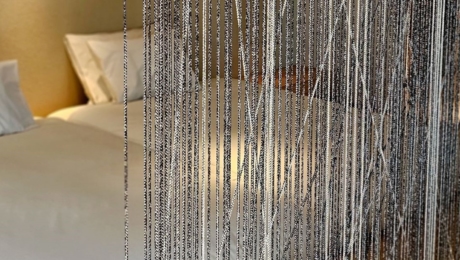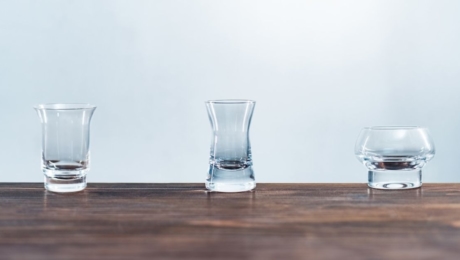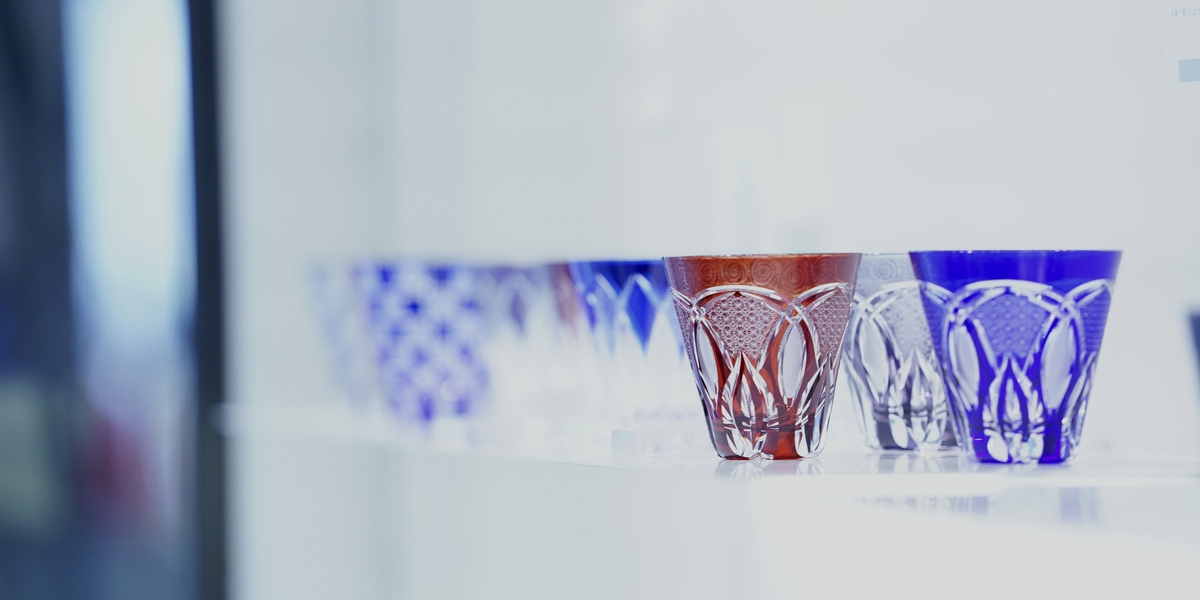
“Hanashyo” passes on the heritage of the Edo Kiriko, with its colorful and delicate patterns, and makes them its own. What is this charm that has enriched the daily life of individuals from ancient times to the present day, this ”artistic craftsmanship” that blends into the everyday life?
2020.02.21
LIFEEdo Kiriko is a traditional craft referring to a technique of glass decoration. A glassworks called "Irogise Garasu" adds colored glass to the original object and carves a pattern symbolizing the Edo culture. The shining pattern continues to attract a large number of people. Discover the past of Edo Kiriko, born from the temperament and sensibility of a Japanese artist, and learn about its future.
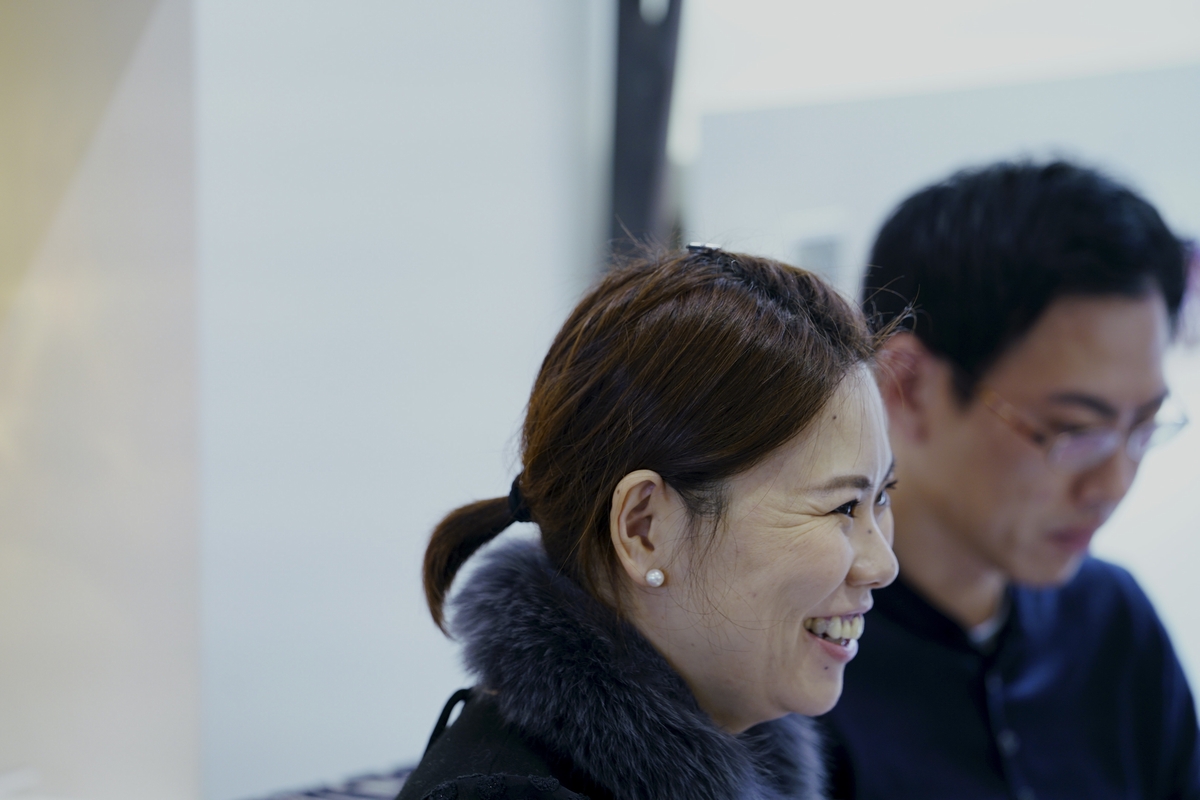
Chisato Kumakura (left) speaks of Edo Kiriko‘s charm with a cheerful expression.
It has established itself in the everyday life of ordinary people but also as a remarkable form of craftsmanship.
It is said that the Edo Kiriko began when a craftsman named Kagaya Kyubei carved glass with emery at the end of the Edo period. Later, Western techniques of glasswork were introduced to Japan and modern techniques were developed under the leadership of the Englishman Emanuel Hopeman, who mastered the most advanced techniques of carved glass. Initially, glassware was considered a tool and a gift for the wealthy classes, such as Australian tribes and merchants, but it gradually spread to commoners, and several glass workshops were established in downtown Edo. Such a historical context explains why the Edo Kiriko is also called “culture fostered by commoners”. Although the Edo Kiriko has beautiful and delicate incisions, each one has its own meaning and ideas. Take the hemp leaf pattern, for example. When the hemp leaves grow straight and steadily, it is said: “to stay healthy all the time”. The Edo Kiriko has perhaps been loved by people from ancient times to the present day because it carries a great sensitivity, just like the Japanese culture.
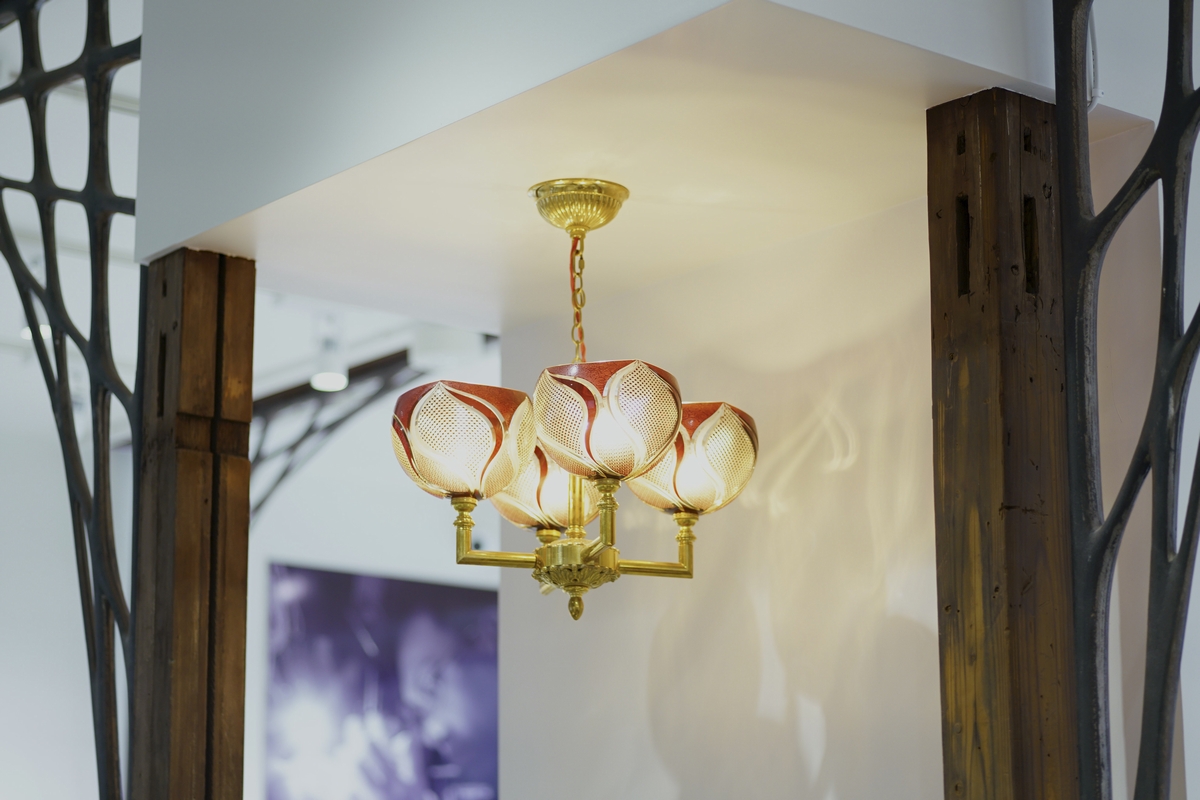
Edo Kiriko lamps are only possible thanks to the delicate technology of “Hanashyo”.
Changing with time, offering new perspectives to traditional industries.
When we think of Edo Kiriko, the first thing that comes to mind is the finesse of the model, but in fact the characteristics differ depending on the workshop. At “Hanashyo”, we seek “to express ourselves through the best technology available” and we create different handcrafted models, from those inherited from Edo to those created by Hanashyo. What makes this art so attractive? “Because glassware is widely distributed all over the world, I think it can be used globally. Edo Kiriko is relatively easy to integrate into the everyday life and brings an added value. We can see and appreciate it, so I think it is truly a world-class Japanese craft. The value of handmade products goes beyond the visible and makes everyday life special. You have to have something like the Edo Kiriko, if only for eating and drinking.
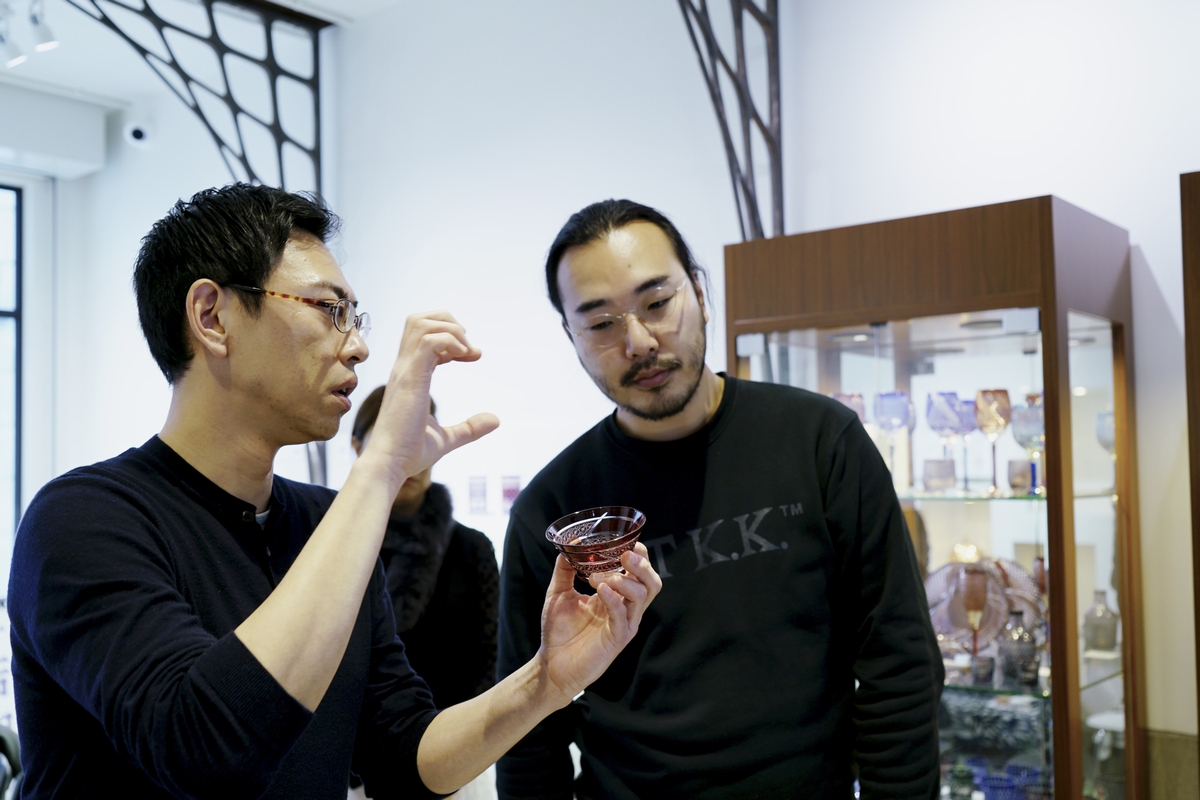
A meeting with Takayuki Kumakura (on the left, observing the craftsman), will be organized on the occasion of the exhibition.
He says he’s thinking of a new creation of “Hanshyo”, which has unique qualities like Edo Kiriko and is full of originality. “We used to focus on the practical aspect when making products, but now we would like to experiment with products and works having a more pronounced artistic dimension, such as ‘dreams’ and objects devoid of a specific shape. I would like to challenge myself to express everything that can be expressed through this technique, without constraints. I want to create an expression that arouses enthusiasm in everyone. In this exhibition, “EDO TOKYO RETHINK”, it will be possible to admire the Edo Kiriko and the different creations of “Hanashyo”. There is growing expectation about the way in which “Hanashyo” , who continue their unique work, express themselves through the Edo Kiriko.
Photo by Satomi Yamauchi
Top Photo:The shop located in Nihonbashi is filled with several Edo Kiriko with sumptuous and delicate designs.


